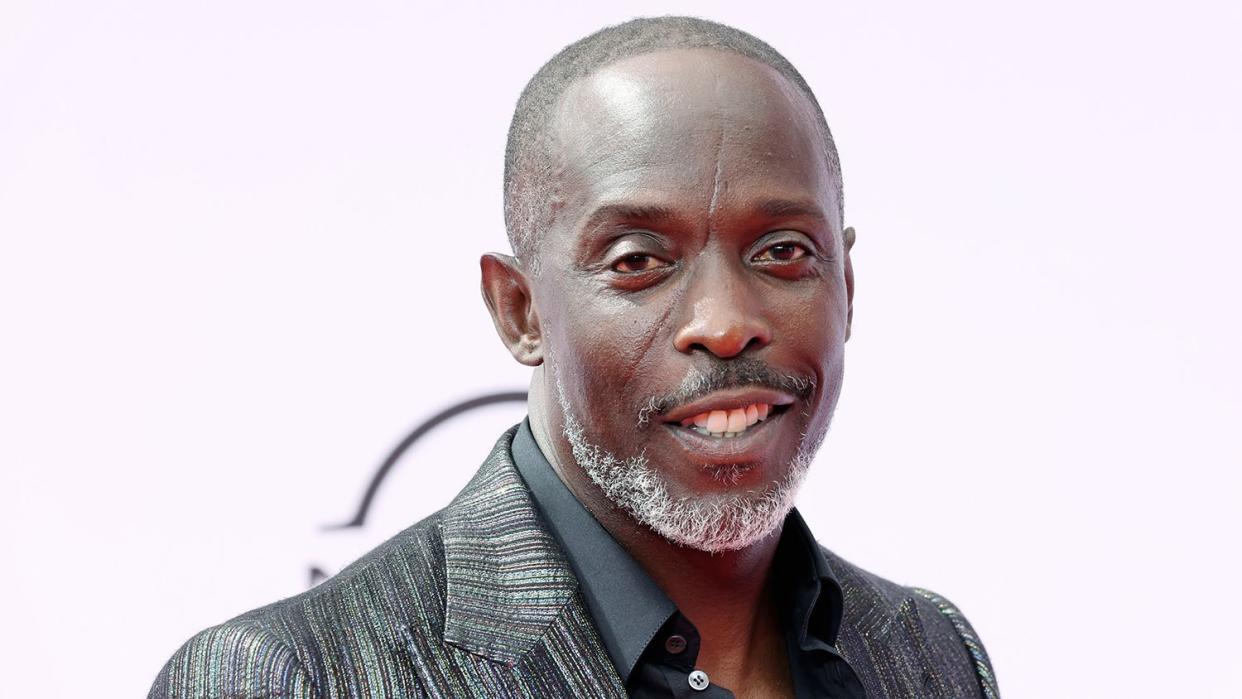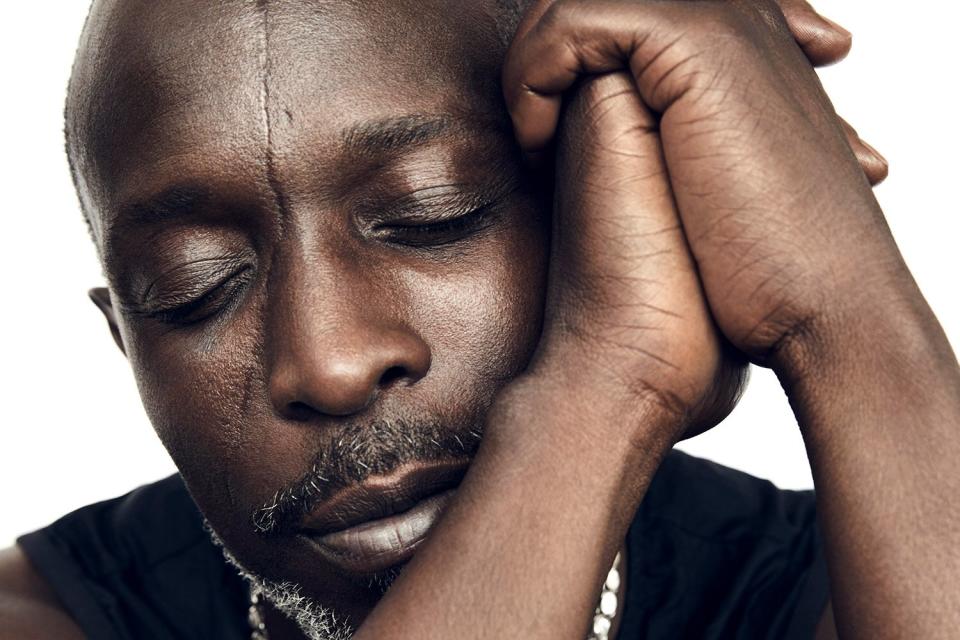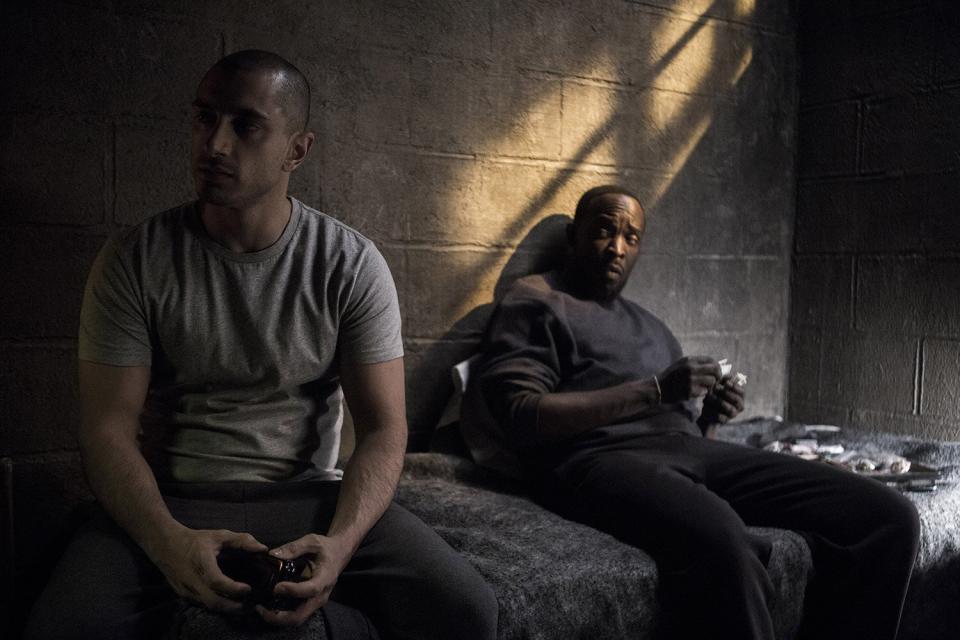The Wire 's Michael K. Williams Described How Most Intense Roles Led to Relapse in Posthumous Memoir

- Oops!Something went wrong.Please try again later.
- Oops!Something went wrong.Please try again later.
Amy Sussman/FilmMagic Michael K. Williams
Michael K. Williams poured himself into his biggest roles, from The Wire to Lovecraft Country. But the emotional toll those performances took would often send the acclaimed actor into relapse, he reveals in his upcoming posthumous memoir, Scenes From My Life.
When The Wire entered his life, Williams was 35 and working in a Brooklyn daycare run by his mother. After a promising start in the industry, Williams' opportunities had seemingly dried up. He made one last-ditch effort to gain the notice of casting directors, borrowing money from his mother to send out fresh resumes and headshots.
Finally, a lone fax came for an audition for a character named Omar Little.
"At the Omar audition, I was so beat down emotionally. That's the most ironic thing. That f--k-the world attitude helped get me the part," he writes in PEOPLE's exclusive excerpt of the posthumous memoir, co-written by Jon Sternfeld.
It was that hunger that initially drove him to stay clean playing the iconic Baltimore thief.
"Shooting in Baltimore for season 1, I was as sober as I'd ever been, barely even smoking weed. I treated the job like my life depended on it because in some ways it did," he writes. "By that age, I'd been on the addiction/relapse merry-go-round enough to know how things could unravel once drugs entered the picture."

Jesse Dittmar/Redux Michael K. Williams
RELATED: Michael K. Williams Career in Photos
But portraying Omar's pain on camera ultimately sent Williams reeling — and back to drugs.
"A director calling 'cut' doesn't erase what you're feeling. Your mind feels the fictional the same way it feels the real," he explains. "That's the flip side of getting into a character; you wake up that sleeping beast. I meditate on painful things all day long for a scene and when it's over, it's little wonder I'm tempted to go off and smoke crack."
By season 2, Williams was promoted to a series regular, renting an apartment in an upscale Baltimore brownstone. His lucrative contract meant he was getting paid more money per episode – and for each episode produced, whether he appeared or not.
Soon, Williams found himself in trouble again.
"I had more money and more time on my hands," he writes. "My demons had room to play. On days I wasn't shooting I started getting high on crack and cocaine again, until I was completely broke. When season 2 wrapped, I could no longer afford the rent on that beautiful apartment."
By the end of the series, Williams was plagued about his worth without Omar. "I felt stripped, lost, emptied-out," he says.

Craig Blankenhorn/HBO Michael K. Williams with Riz Ahmed in "The Night Of"
RELATED: Michael K. Williams' Nephew Recalls Discovering His Uncle After Fentanyl Overdose: 'He's Gone'
Williams would find future roles would often lead him back down a dark path.
Shooting The Night Of, which earned him an Emmy nomination, Williams played Freddy, a fearsome addict imprisoned for life, guiding a frightened new inmate (Riz Ahmed) on how to survive behind bars.
His nephew's decades-long incarceration for a juvenile crime weighed heavily on him as he shot the role. "The character stirred up so many issues for me that before the shoot ended, after around five years sober, I would cave in on myself," he says. In one instance during that relapse, Williams didn't show up for work.
Exploring generational Black trauma for Lovecraft Country, which also earned him an Emmy nomination, "put me through the wringer, mentally and emotionally," wrote the star, who played a Black man who survived the 1921 Tulsa Race Massacre in the series. Without a support system on set in Atlanta, Williams writes he turned to his "old standby."
Afterwards, he says, he "got into therapy and Narcotics Anonymous meetings, reconnected with my sponsor, and addressed my trauma head-on."
RELATED VIDEO: Gabrielle Union Says Michael K. Williams Once Left Her 'Bawling' After Candid Chat: 'He Saw Me'
Never miss a story — sign up for PEOPLE's free daily newsletter to stay up-to-date on the best of what PEOPLE has to offer, from juicy celebrity news to compelling human interest stories
Prior to his September 2021 death from an accidental fentanyl-laced overdose at age 54, Williams had launched a new chapter in his life — one that focused on giving back. Passionate about social justice activism and helping his community, he felt he'd finally found his voice.
"At around fifty years old, I figured out who I am," he writes. "But now I have to figure out why I am. I made it. Great. Now what? What was it for? If my shoulders aren't strong enough for others to stand on, then I'm wasting my second chance."
Scenes From My Life is out August 23.
If you or someone you know is struggling with substance abuse, please contact the SAMHSA helpline at 1-800-662-HELP.

